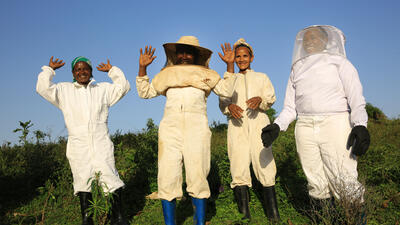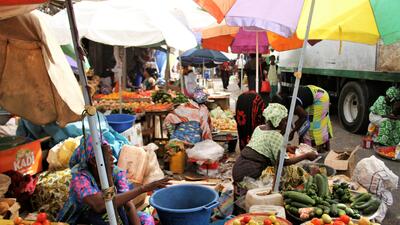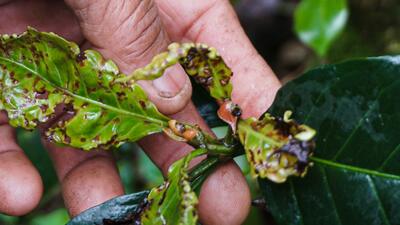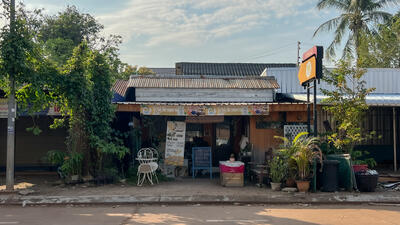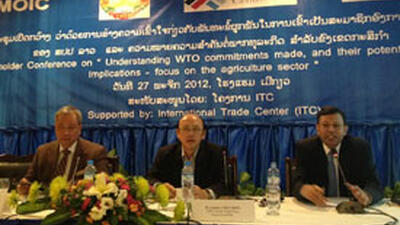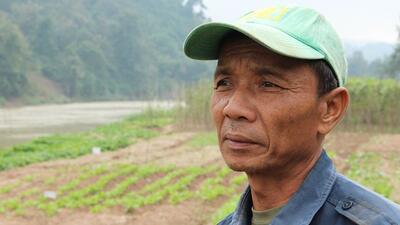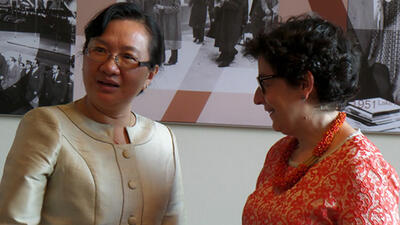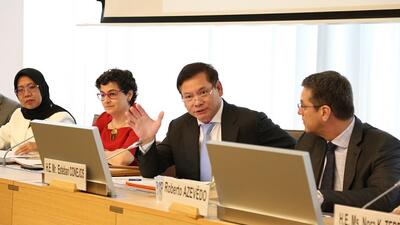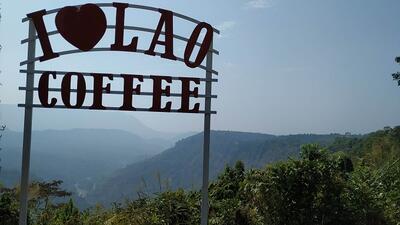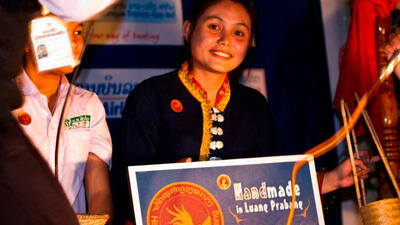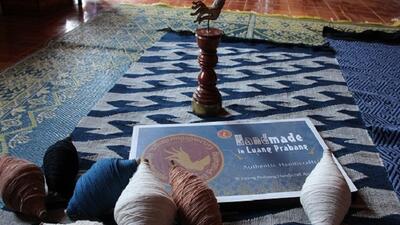


Lao officials to improve plant health and pesticide residues
Government officials in Lao PDR receive ITC training to boost regional and EU trade of safe food and plant products
In the Lao People’s Democratic Republic (Lao PDR), fruits, vegetable and plant products have significant export potential to the European Union (EU), the Association of Southeast Asian Nations (ASEAN) and China. However, these products are among the most regulated sectors in international trade.
Through its Systematic Mechanism for Safer Trade (SYMST) project, the International Trade Centre (ITC) is supporting the Lao Government to improve food safety through better governance, with the aim to enhance the regional and EU trade of safer products thanks to improved controls and safer use of pesticides.
Vilosa Thalibout is the Deputy Director at the Plant Protection Centre of the Ministry of Agriculture and Forestry. Despite having operated for decades, there are some inevitable challenges.
“Our staff do not have enough technical knowledge and experience as they lack the appropriate trainings and resources,” says the Deputy Director. “This issue poses a significant challenge in fulfilling the roles and responsibility of the Centre.”
Thalibout has been working at the Plant Protection Centre for 17 years. His main responsibilities involve researching and analysing the quality of pesticides used in fruits and vegetables as well as the residue level in plant products. He is also one of the trainees of ITC’s training ‘MRL Measurement of Pesticide for Fruit and Vegetables Exporting to the EU’ that took place earlier this year.
Maximum Residue Level (MRL) is vital in global food trade. MRL is a trading standard set to control residues by national and international authorities. Countries setting different maximum residue levels can impede access to export markets and new crop-protection technologies.
Working closely with the Department of Agriculture, ITC strengthens the capacity of the laboratories at the Plant Protection Centre and its staff to analyse pesticide quality and residues for routine monitoring. ITC provides a series of MRL trainings and field visits to address their challenges and help them comply with regulatory measures on plant health and pesticides. This ultimately leads to increased exports of Lao agricultural products.
“This training has helped me better understand how to prepare the necessary chemicals, calibrate and use measuring equipment in our laboratory, especially the LC-MS/MS machine for measuring MRLs of plant chemicals,” says Thalibout.
About the project
The International Trade Centre’s Systematic Mechanism for Safer Trade project provides the necessary skills for participating companies to improve their market-access opportunities. It also helps build business links between farmers and exporters and increase the interest from international buyers. Ultimately, the project looks at enhancing the exporter’s opportunities in accessing regional and European markets.
The project was jointly established in 2020 by the Ministry of Agriculture and Forestry (MAF), the International Trade Centre (ITC) and funded by the European Union.




